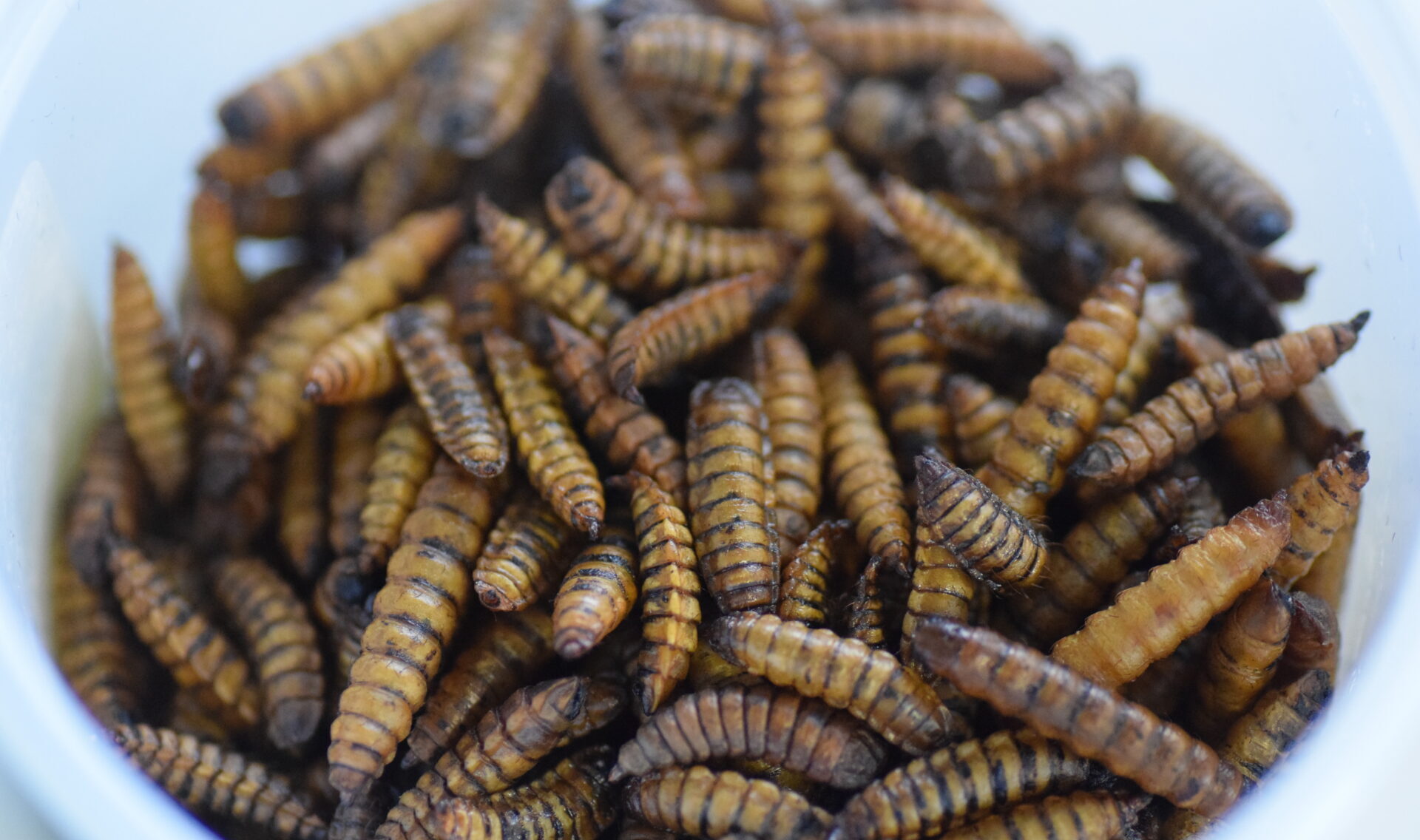
By Agroempresario.com
The landscape of recombinant protein production is witnessing a transformative shift, as Antwerp-based startup FlyBlast introduces genetically modified black soldier flies as a more efficient alternative to traditional microbial methods. The company aims to revolutionize insulin production and other high-value proteins, particularly for the burgeoning cultivated meat industry.
FlyBlast’s founder and CEO, Johan Jacobs, asserts that utilizing black soldier flies can significantly lower costs associated with the production of essential biomolecules used in cell culture media. “Molecules like insulin and transferrin can represent up to 85% of growth medium costs for cultivated meat. By mass-producing these proteins in insect-bioconversion facilities, we can reduce costs by as much as 95%,” Jacobs states.
The black soldier fly’s inherent ability to thrive in large-scale farming operations makes it an ideal candidate for this innovation. Jacobs emphasizes, “The existing infrastructure for insect farming is already established, enabling us to introduce advanced technology that enhances profitability without significant additional capital expenditure.”
FlyBlast’s strategy leverages the natural insulin-like pathways found in black soldier flies, simplifying the process of producing human insulin. This biological advantage allows for more straightforward genetic modifications compared to microbes, which often require complex alterations to express animal-derived proteins.
However, targeting the cultivated meat sector poses inherent risks. Jacobs acknowledges, “The cultivated meat market is still developing, presenting uncertainties for investors seeking timely returns.” Nevertheless, FlyBlast’s team brings substantial industry experience, particularly from previous ventures in cultivated meat, which positions them uniquely to navigate these challenges.
The startup’s initial focus on insulin production is not merely about addressing the cultivated meat industry’s needs; it also opens doors to the broader diabetic market, emphasizing the dual potential for impactful health solutions and significant market opportunities. Jacobs notes, “While we have eyes on the human pharmaceutical market, our immediate aim is to streamline costs for the cultivated meat sector, thereby facilitating its growth.”

FlyBlast employs a two-pronged genetic enhancement strategy: introducing new genes to enable the production of molecules not naturally present in the species and modifying existing genes to optimize traits like protein composition. This dual approach ensures that the company can adapt its production capabilities to meet diverse market demands.
When questioned about the sustainability of their process, Jacobs assures that the residual materials post-insulin extraction will still have value. Although the genetically modified byproducts may face restrictions in some regions as livestock feed, they can be effectively utilized in technical applications, such as industrial lubricants, demonstrating the broad utility of their production model.
As FlyBlast advances its mission, the company has already established a stable breeding line capable of high-yield insulin production within just one year. Jacobs expresses optimism about their future, stating, “Our next steps involve extracting the insulin, supplying samples to customers, and determining which biomolecules to target next.”
In a world increasingly aware of the need for sustainable practices, FlyBlast's approach to recombinant protein production stands to reshape industries. By utilizing the capabilities of black soldier flies, the company not only addresses significant production challenges but also aligns with global sustainability goals. As the demand for innovative agricultural solutions grows, FlyBlast positions itself at the forefront of this essential transformation.
